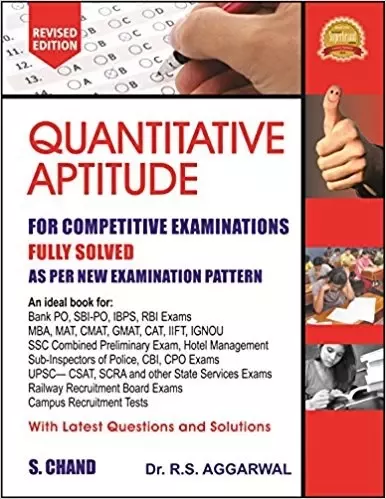G Subbarao Ethics Book Pdf Free Download
- G Subbarao Ethics Book Pdf Free Download Free
- G Subbarao Ethics Book Pdf Free Download Full
- G Subbarao Ethics Book Pdf Free Download Version
Summary:Considered one of the great rationalists of 17th-century philosophy, Spinoza's posthumous masterpiece Ethics, in which he opposed mind–body dualism, has earned him recognition as one of Western philosophy's most important thinkers. The first part of the book addresses the relationship between God and the universe. The second part focuses on the human mind and body. In the third part, Spinoza argues that all things, including human beings, strive to persevere in their being. The fourth part analyzes human passions.The fifth part argues that reason can govern the affects in the pursuit of virtue.
By that which is self-caused, I mean that of which the essence involves existence, or that of which the nature is only conceivable as existent.II. A thing is called finite after its kind, when it can be limited by another thing of the same nature; for instance, a body is called finite because we always conceive another greater body. So, also, a thought is limited by another thought, but a body is not limited by thought, nor a thought by body.III. By substance, I mean that which is in itself, and is conceived through itself: in other words, that of which a conception can be formed independently of any other conception.IV.
By attribute, I mean that which the intellect perceives as constituting the essence of substance.V. By mode, I mean the modifications of substance, or that which exists in, and is conceived through, something other than itself.VI.
By God, I mean a being absolutely infinite-that is, a substance consisting in infinite attributes, of which each expresses eternal and infinite essentiality.Explanation—I say absolutely infinite, not infinite after its kind: for, of a thing infinite only after its kind, infinite attributes may be denied; but that which is absolutely infinite, contains in its essence whatever expresses reality, and involves no negation.VII. That thing is called free, which exists solely by the necessity of its own nature, and of which the action is determined by itself alone. On the other hand, that thing is necessary, or rather constrained, which is determined by something external to itself to a fixed and definite method of existence or action.VIII. By eternity, I mean existence itself, in so far as it is conceived necessarily to follow solely from the definition of that which is eternal.Explanation—Existence of this kind is conceived as an eternal truth, like the essence of a thing, and, therefore, cannot be explained by means of continuance or time, though continuance may be conceived without a beginning or end.AXIOMS.I.
How to change utorrent language from arabic to english. But it will take a very long time, since i've to wait for each next builds for each changes i've make.I need to do this in order to check the string length, so that it matches the width of the application window.Wait, i've another doubt.

Everything which exists, exists either in itself or in something else.II. That which cannot be conceived through anything else must be conceived through itself.III. From a given definite cause an effect necessarily follows; and, on the other hand, if no definite cause be granted, it is impossible that an effect can follow.IV. The knowledge of an effect depends on and involves the knowledge of a cause.V.

G Subbarao Ethics Book Pdf Free Download Free
Things which have nothing in common cannot be understood, the one by means of the other; the conception of one does not involve the conception of the other.VI. A true idea must correspond with its ideate or object.VII. If a thing can be conceived as non-existing, its essence does not involve existence.PROPOSITIONS.PROP.
G Subbarao Ethics Book Pdf Free Download Full
Substance is by nature prior to its modifications.Proof.—This is clear from Deff. Two substances, whose attributes are different, have nothing in common.Proof.—Also evident from Def. For each must exist in itself, and be conceived through itself; in other words, the conception of one does not imply the conception of the other.PROP. Things which have nothing in common cannot be one the cause of the other.Proof.—If they have nothing in common, it follows that one cannot be apprehended by means of the other (Ax. V.), and, therefore, one cannot be the cause of the other (Ax. Two or more distinct things are distinguished one from the other, either by the difference of the attributes of the substances, or by the difference of their modifications.Proof.—Everything which exists, exists either in itself or in something else (Ax. I.),—that is (by Deff.
G Subbarao Ethics Book Pdf Free Download Version

And v.), nothing is granted in addition to the understanding, except substance and its modifications. Nothing is, therefore, given besides the understanding, by which several things may be distinguished one from the other, except the substances, or, in other words (see Ax. Iv.), their attributes and modifications. There cannot exist in the universe two or more substances having the same nature or attribute.
Click on the image to start youtube video lecture series! 2014: Articles on EthicsHere is the list of articles published under Ethics series for UPSC CSAT Paper II (decision making) and General Studies Paper IV (ethics) for Civil service IAS IPS Exam.GS4: Mains Syllabus for Ethics, Integrity and AptitudeThis paper will include questions to test the candidates’ attitude and approach to issues relating to integrity, probity in public life and his problem solving approach to various issues and conflicts faced by him in dealing with society. Questions may utilise the case study approach to determine these aspects.